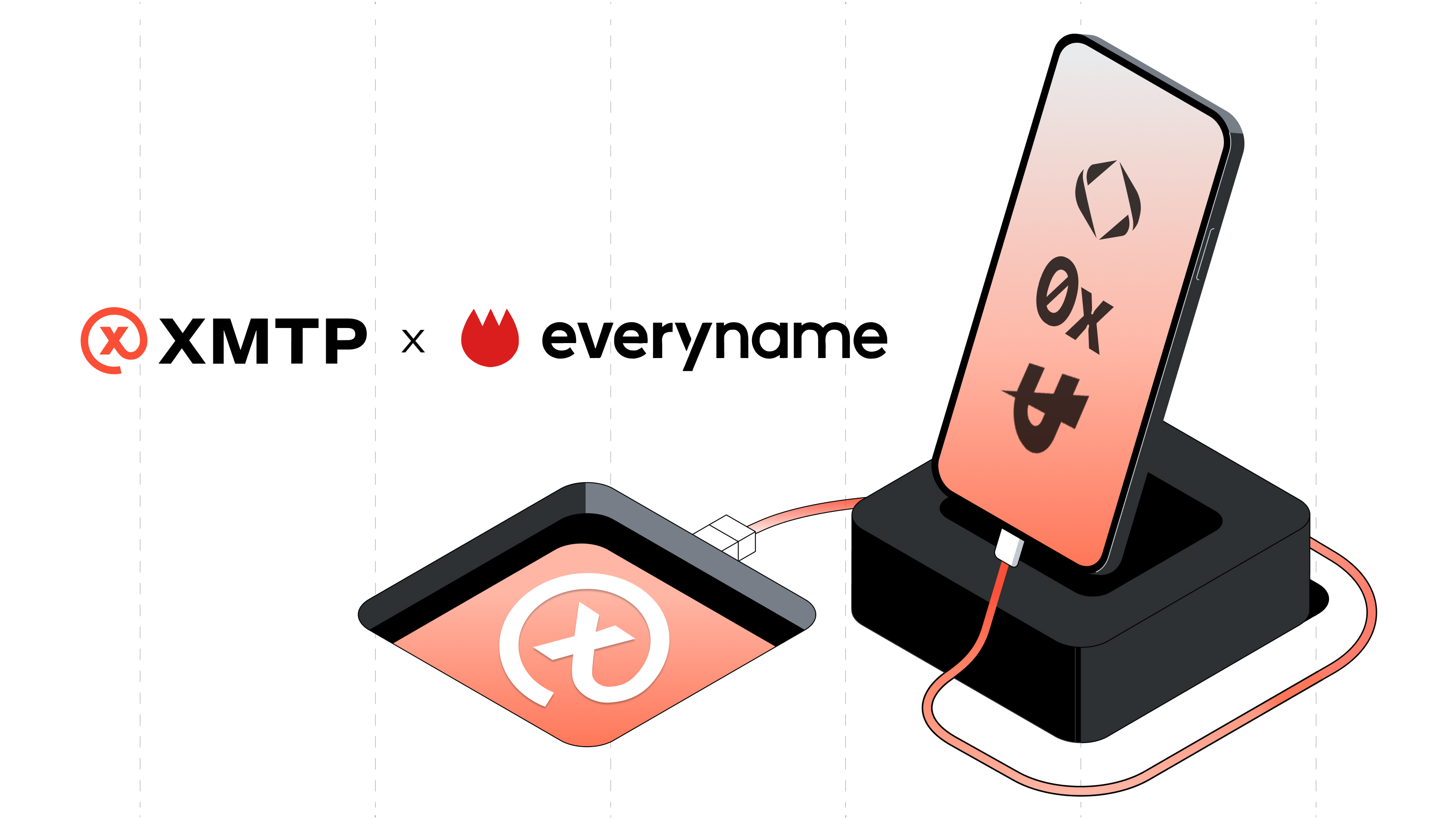When you build with XMTP, there’s no cold start for your app or your users. As soon as your app plugs into the XMTP network, it's able to reach today’s most popular and meaningful identities.

XMTP’s interoperability and composability help ensure that the network can continue to grow and bring messaging to every identity—via your app.
In this context, identity refers to:
- Wallet addresses, such as raw 0x addresses like
0x4b70d04124c2996De29e0caa050A49822Faec6Cc - Human-readable domain names associated with wallet addresses. These domain names are provided by name services, such as Ethereum Name Service (ENS) and Unstoppable Domains (UNS).
As a UX best practice, build your app to enable a user to enter a domain name in the To field and have it resolve to its associated raw wallet address.
For example, a user should be able to enter gm.xmtp.eth in your To field and have your app forward-resolve and display its associated wallet address 0x937C0d4a6294cdfa575de17382c7076b579DC176.
And certainly, your app should also be able to accept a raw wallet address and reverse-resolve and display the associated domain name, if available.
Resolve identities using the Everyname API
To resolve identities in your app, consider using Everyname, which provides forward and reverse identity resolution for many name services.
Forward resolution using Everyname
For forward resolution, send a GET request with a domain name, or handle. For example:
import {} from "dotenv/config";
import axios from "axios";
const handle = "fabri.lens";
let config = {
method: "get",
maxBodyLength: Infinity,
url: `https://api.everyname.xyz/forward?domain=${handle}`,
headers: {
Accept: "application/json",
"api-key": process.env.EVERYNAME_KEY,
},
};
axios
.request(config)
.then((response) => {
console.log(response.data);
})
.catch((error) => {
console.log(error);
});
The response provides the associated wallet address. For example:
{
success: true,
address: '0x7E0b0363404751346930AF92C80D1fef932Cc48a',
tldUrl: 'https://lens.xyz',
tld: '.lens'
}
Reverse resolution using Everyname
For reverse resolution, send a GET request with a wallet address and network. For example:
import {} from "dotenv/config";
import axios from "axios";
const axios = require("axios");
let config = {
method: "get",
maxBodyLength: Infinity,
url: "https://api.everyname.xyz/reverse?address=0x7E0b0363404751346930AF92C80D1fef932Cc48a&network=lens",
headers: {
Accept: "application/json",
"api-key": "process.env.EVERYNAME_KEY",
},
};
axios
.request(config)
.then((response) => {
console.log(JSON.stringify(response.data));
})
.catch((error) => {
console.log(error);
});
The response provides the associated domain name, if available. For example:
{
"success": true,
"provider": "lens",
"tldUrl": "https://lens.xyz",
"name": "fabri.lens"
}
Learn more
To learn more about building with Everyname, see their Developer Portal
Join us on Discord
We're excited to be partnering with Everyname to bring you better solutions for serving and reaching your end users. Stay tuned for more guides coming soon!
Was the information on this page helpful?
powered by XMTP


